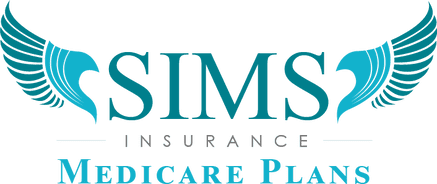Navigating the world of Medicare can be complex, especially when understanding and managing out-of-pocket expenses. As an Oregon Medicare Insurance Agency, we at Scott Sims Medicare are dedicated to providing quality information and guidance to help you make informed decisions about your healthcare coverage. That includes offering insights into reducing out-of-pocket costs so you can enjoy quality healthcare without unnecessary financial burden.
In this blog post, we will share our top tips for managing your out-of-pocket healthcare expenses with Medicare. You’ll learn ways to minimize costs by choosing the right coverage plans, enrolling at the right time, utilizing preventive services, and being discerning about medical providers. We’ll also highlight the importance of comparing different Medicare offerings to find the most cost-effective solutions tailored to your healthcare needs and budget.
By following these practical tips and implementing suitable strategies, you can take control of your Medicare expenses without compromising the quality of healthcare you receive. Remember that while healthcare costs can sometimes be daunting, comprehensive knowledge of your Medicare options and a proactive approach to managing expenses will pave the way for more affordable, stress-free coverage.
Selecting the Right Medicare Plan
Choosing the right Medicare plan can have a significant impact on out-of-pocket costs. It’s essential to scrutinize different plans to ensure the coverage aligns with your healthcare needs and budget constraints. Here are some useful guidelines to follow:
1. Analyze your healthcare needs and preferences before making a decision. Consider your current and future medical services, prescriptions, and preferred healthcare providers.
2. Compare the offerings of both Original Medicare and Medicare Advantage to determine which best suits your needs. Medicare Advantage (Part C) plans often include additional benefits, such as prescription drug, dental, and vision coverage, which could help minimize out-of-pocket expenses.
3. Investigate the costs associated with specific plans, including premiums, deductibles, copayments, and potential out-of-pocket maximums.
4. Monitor changes to Medicare plans and costs, as these can vary from year to year.
Enroll in Medicare at the Right Time
Enrollment timing can play a significant role in out-of-pocket costs. Enrolling late in Medicare Part B or Part D can result in lifetime penalties in the form of increased monthly premiums. Avoid these penalties by enrolling during your Initial Enrollment Period (IEP), which typically spans seven months and includes the three months before, the month of, and the three months following your 65th birthday or eligibility due to disability.
Utilize Preventive Services
Medicare covers many preventive services at no additional cost to beneficiaries, which can be an effective way to minimize out-of-pocket healthcare expenses. Utilizing preventive services can help identify health issues early on, potentially reducing the need for more expensive treatments down the line. Some covered preventive services include:
1. Annual Wellness Visits
2. Cardiovascular disease screenings
3. Diabetes screenings
4. Cancer screenings (colonoscopies, mammograms, etc.)
5. Immunizations
Stay informed about the preventive services covered by Medicare and schedule appointments with your healthcare provider accordingly.
Choose Healthcare Providers Wisely
The healthcare providers you choose can directly affect your out-of-pocket expenses. Keep these points in mind when selecting healthcare providers:
1. If you have Original Medicare, ensure your chosen healthcare provider accepts Medicare assignment, as this means they will not charge more than the Medicare-approved amount for services.
2. When opting for a Medicare Advantage plan, be aware of the in-network and out-of-network rules of your specific plan. Staying within your plan’s network can help avoid higher out-of-pocket expenses.
3. Compare the costs of medical services and medications across different healthcare providers and pharmacies whenever possible.
Consider Supplemental Coverage
For those on Original Medicare, a Medicare Supplement Insurance (Medigap) plan can help cover out-of-pocket costs, including deductibles, copayments, and coinsurance. When exploring Medigap plans, keep the following tips in mind:
1. Research different Medigap plans offered in your area. Ten standardized Medigap plans currently exist, which differ in covered costs and benefits.
2. Keep in mind that Medigap plans can have varying monthly premiums, so weigh the premium costs against any potential out-of-pocket savings.
3. Be aware that the best time to enroll in a Medigap plan is during the six-month Medigap Open Enrollment Period, which starts on the first day of the month you turn 65 and are enrolled in Medicare Part B. During this period, insurance companies can’t use medical underwriting, so your past or present health conditions won’t affect your premium costs or ability to enroll.
Conclusion
By taking into account the tips outlined in this blog post, you’ll be well on your way to finding cost-effective Medicare coverage while minimizing out-of-pocket expenses. Managing these costs is vital to ensuring you receive the best possible healthcare without straining your financial resources.
If you need assistance navigating the ins and outs of Oregon Medicare Insurance Agency offerings and finding solutions for reducing out-of-pocket costs, reach out to our dedicated team at Scott Sims Medicare. We’re here to provide personalized guidance, expert advice, and a helping hand as you explore the often complex world of Medicare coverage.


